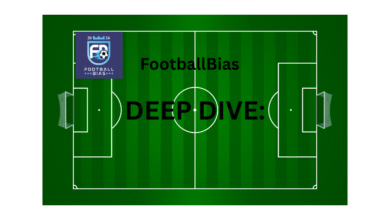
From a fan’s lens, penalties look simple, it’s an uncontested shot at goal from twelve yards, isn’t it? But in that moment, everything feels heavier. The noise fades, the body tightens, and the pressure builds. What players do so easily every day in training suddenly feels like a herculean task
Fans often treat penalties as routine chances but in reality, they’re mental tests disguised as easy goals. A single miss can follow a player for years but a conversion rarely earns more than a sigh of relief. Penalties are not about skill as much as composure. When the whistle blows, there’s nowhere to hide, and what decides the outcome isn’t talent, it’s the ability to stay calm, to drown the outside noise out.
When it comes to penalties, pressure changes everything. A player can take hundreds of penalties in training without missing, but under the weight of a real match, that same kick feels completely different. The crowd, the cameras, the context, all of it feeds into a moment that lasts only a few seconds but feels much longer than that.
The fear isn’t just of missing; it’s of letting people down. Teammates, coaches, fans, even the memory of past failures can creep in. That’s how overthinking starts. Players begin to second-guess their run-up, their placement, even their breathing. The body knows what to do, but the mind gets in the way.
The pressure doesn’t just make players nervous, it changes how they execute. Muscles tighten, reactions slow, and focus drifts. Penalties reveal that thin line between confidence and collapse, and in those few seconds, even the best players can lose balance on both.
From the stands, it looks like the easiest chance in football. Just the striker, the ball, and the goal. But anyone who’s taken one under pressure knows it’s nothing like that.
There are too many variables for it to ever feel simple, the pitch, the crowd, the keeper, the scoreline. You might be tired, the ball might bobble, the keeper might wait longer than usual, and suddenly everything feels off. In a big game, that pressure multiplies.
Even players known for calmness have missed from the spot because there’s no such thing as a guaranteed penalty. When the stakes rise, the distance feels longer than twelve yards. Fans can call it easy, but those who’ve stood over the ball even in Sunday League know, it never is.
No matter how confident or well-prepared a player is, there’s always an element of chance in penalties. You can study the goalkeeper, rehearse your run-up, and pick your spot perfectly, yet the ball can still hit the post, or the keeper might guess right. Even the best penalty takers in history have missed because perfection is hard to repeat under pressure.
That’s what makes penalties so unpredictable. They live in that middle ground between control and luck. Sometimes it’s the cleaner strike that gets saved, and the slightly scuffed one that goes in. Players know this, and it adds to the tension. You can do everything right and still miss and that’s what makes penalties football’s most unforgiving lottery.
For goalkeepers, penalties are about reading people as much as reading the ball. They study habits, eye movements, even body angles, but a lot of the time it still comes down to instinct. In a shootout, their job isn’t just to save, it’s to unsettle both the player that’s about to take and the one that might come after. Their edge lies in disrupting rhythm and confidence and no one does that better than Emiliano Martínez. He turns every shootout into theatre, staring down opponents, delaying kicks, talking, moving, anything to make the taker think twice. It’s calculated chaos, and it works, he won Argentina a world cup with his antics.
Others wave their arms, or step forward to shrink the goal. The pressure shifts slightly in their favor because they have less to lose. If they concede, it’s expected; if they save, they’re the hero. That freedom lets them take risks the taker can’t. Penalties may look like duels of skill and in a way they are, but they are more often battles of nerves and the keeper usually enjoys them more.
Penalties leave long lasting memories. Roberto Baggio’s miss in the 1994 World Cup final still defines how many remember him, he was called “The man who died standing” even though he was their best player and had carried Italy up to that point in the first place. Kylian Mbappé’s failure against Switzerland in the Euros in 2021 came before his redemption at the World Cup, where he buried every spot-kick under even heavier pressure, although his teammates didn’t show the same steel as France still lost to Argentina on penalties
Even the greatest of all time aren’t immune. Cristiano Ronaldo missed in the 2008 Champions League final shootout before watching his team lift the trophy, but the moment stayed with him, a reminder that even icons can flinch. Lionel Messi missed in the 2016 Copa América final and walked off in tears, only to return years later and finally win the same tournament.
That’s the nature of penalties, they turn moments into legacies. Some players rebuild, others let the weight linger. The mental side of football doesn’t forget easily, and few experiences test it like standing over a penalty after you’ve already missed one.
Penalties strip football down to its simplest form, one chance, one decision, one moment. They look routine, but they often carry everything: pressure, pride, and unpredictability.
They’re not just about who strikes the ball better, but who holds their nerve longer. Because when it’s quiet, when the crowd is waiting, praying even and the world feels smaller, the real battle isn’t between player and keeper, it’s between the player and himself.








